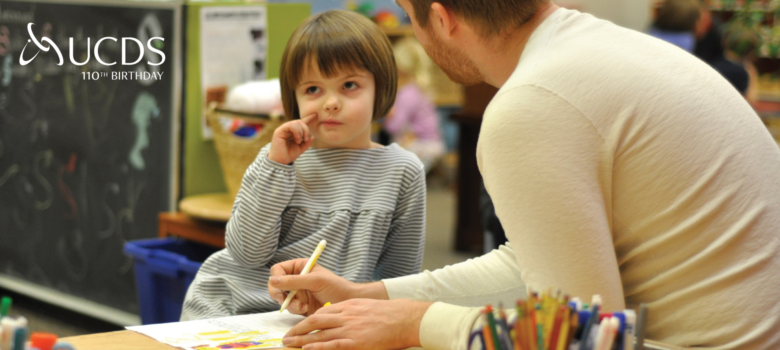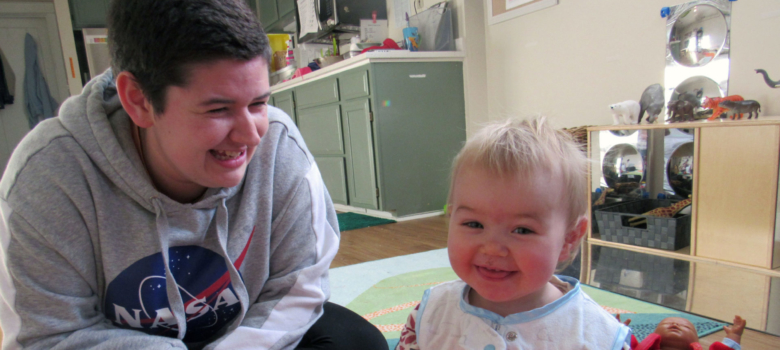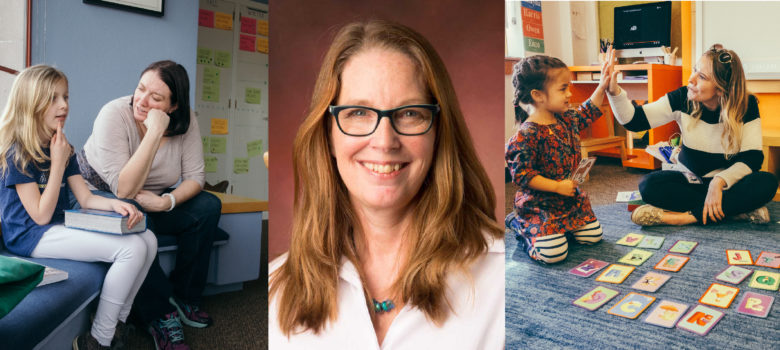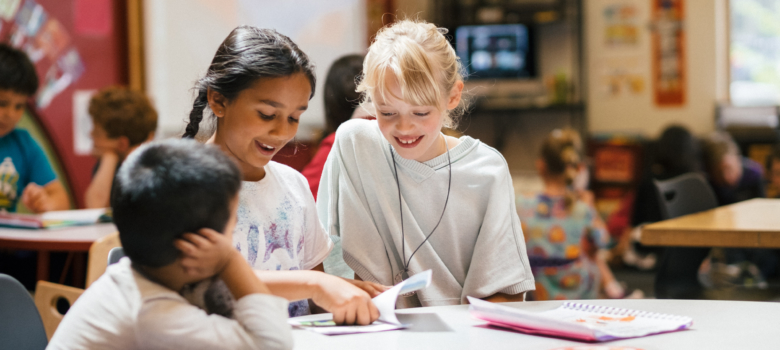Development Specialist Michelle Wilson returns to continue her thoughts on January’s month of mentoring. In this post, she shares the experiences of two of our Resident Teachers. -Ed.
__________
As I discussed in last week’s entry, UCDS’s Resident Teacher Program is a prime example of how our school champions the practice of mentoring. Since we heard from the program coordinators last week, I thought it would be beneficial to hear from the residents about their experience in the program. I caught up with two resident teachers: Forrest Markowitz, who teaches in one of our kindergarten classes, and Shaterra Overton, who works with our 3rd and 4th graders.
Forrest graduated from Colorado College in 2013 where he studied elementary music education. Prior to joining the UCDS community, Forrest held teaching positions that focused on music and he was looking to expand his experience in K-5 classroom teaching. He wanted to work at an independent school that developed its own curriculum. Forrest remarks, “I was attracted to UCDS because of the school’s willingness to draw from different educational methods and then create its own unique learning environment.” Forrest was also drawn to the Resident Teacher Program because he knew he would have the opportunity to work directly with a classroom teacher. “UCDS did a great job trying to understand me as a person and what I’m interested in. They went out of their way to find a mentor who they thought would suit me well. My mentor’s husband is a musician so it’s been really easy to talk with her about any issues that come up or any difficulties that arise. She knows exactly where I’m coming from given my background as a music teacher… There has been goal-setting that is more tailored to me as a teacher and an individual than I expected, so that’s been great.” Forrest is quick to point out that he is positively impacted by the mentoring he receives at UCDS. As a youth soccer coach, he takes the lessons that he learns from his classroom mentor and uses them to work more effectively with the youth that he leads and the other coaches that he works alongside. He adds, “I feel better suited in my role as a facilitator and working in a leadership position.” UCDS prides itself on practicing what it preaches in terms of its values. Forrest asserts, “The school’s curriculum is very personalized towards the students and takes their individual learning styles into account. The residency program is no different.”
Forrest’s co-resident teacher, Shaterra Overton, was also drawn to UCDS’s program for the opportunity to work with seasoned educators. After graduating from Barnard College in New York, Shaterra took a job at the Math Museum in Manhattan, where she realized that she had a knack for teaching math. She adds, “I wanted to figure out why I loved math but everyone else seemed to hate it.” This led her to work on a research project at The Bank Street School that focused on testing math curriculum for kindergarten students. This was the lightbulb-over- the-head moment and Shaterra began exploring opportunities in elementary education. When deciding where to apply for teaching jobs, Shaterra saw the mentoring component of the UCDS Resident Teacher program as a big advantage. “At Bank Street, I was part of a cohort with a mentor and I really liked that… I was looking for a similar environment when I applied to UCDS… and it’s been great; it’s been everything I expected it to be. I have a network of peer support with the other residents. My mentor understands how I work; she helps me channel my strengths to overcome the challenges I face. But it’s not just my assigned mentor, I feel like everyone on my floor and team is a mentor to me. It’s really nice to have the built-in mentorship and then also a huge pool of mentors to draw from.” She adds, “One of the most important things I’ve learned from my mentor is to really think about what my teaching style is and what I’m comfortable doing. What works for one person may not work for me. It’s important to find MY way of teaching and this has made me feel a lot more confident going forward. Coming into my own in the second half of the year, I feel a lot better being in classes alone. I know that my [teaching] style is different from other teachers’ styles and that’s great– that’s the whole point.”




